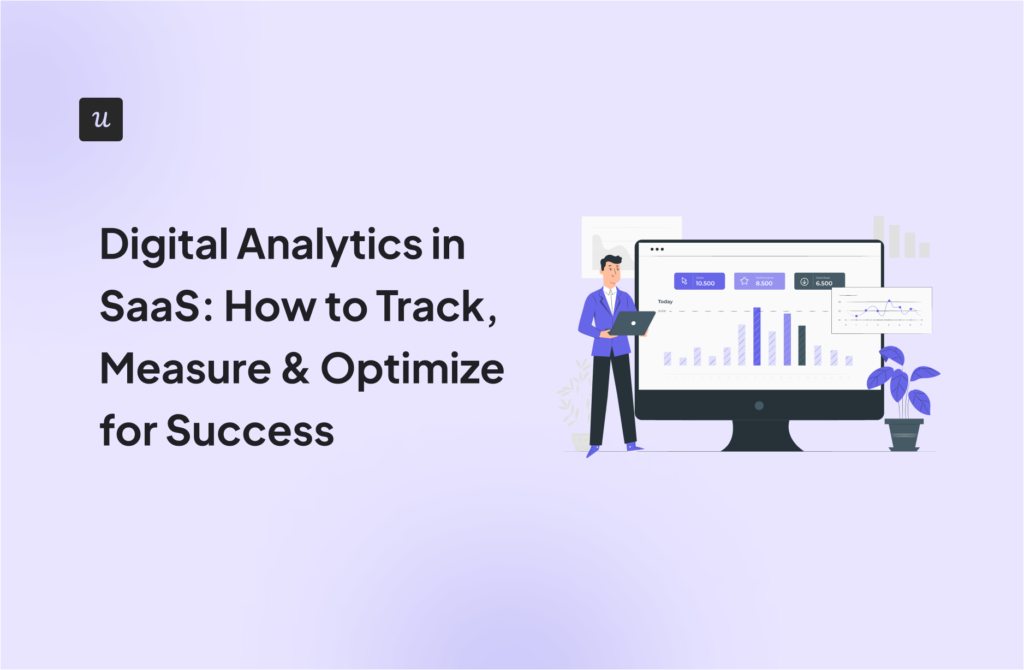
Best Resources for Marketing Analysts4 min read
Get The Insights!
The fastest way to learn about Product Growth, Management & Trends.
Helpful resources for marketing analysts
Marketing is constantly evolving. To stay on top of your game as a marketing analyst, you need to access resources regularly. This ranges from blogs to webinars to podcasts and books. We’ve curated the best resources for a marketing analyst:
Best books for marketing analysts
- Digital Marketing Analytics: Making Sense of Consumer Data in a Digital World By Chuck Heeman and Ken Burbarry: The book explains how to get maximum insights from marketing data and translate them into actionable information that can influence and change your marketing game
- Successful Analytics: Gain Business Insights by Managing Google Analytics by Brian Clifton: One peculiar fact about this book is that it is tool-specific. It focuses on how you can get marketing data from Google Analytics, a tool every marketing analyst should learn how to use.
- Marketing Analytics: Essential Tools for Data-Driven Decisions by Rajkumar Venkatesan, Paul W. Farris, and Ronald T. Wilcox: With practical examples, the book teaches how to identify the data that matters and use it to drive actionable insights.
Best webinars for marketing analysts
Marketing analysts play a critical role in measuring and optimizing marketing campaigns. So here’s a list of helpful resources for you to grow your analysis skills:
- Userpilot Events focuses on product growth and user onboarding, which are crucial aspects for understanding user behavior and optimizing marketing campaigns. Their webinars delve into user journey optimization, feature adoption analytics, and user engagement strategies – all feeding directly into your marketing analytics efforts.
- Tableau frequently hosts webinars on data visualization using their popular software. You can also find webinars on broader marketing analytics topics like campaign attribution and marketing ROI measurement.
- eMarketer (Consider a free trial or membership for full access) offers webinars and research reports on various marketing topics. Gain insights into industry trends and consumer behavior to inform your marketing analytics strategies.
- Singular specializes in marketing attribution solutions and offers webinars on building effective attribution models and optimizing marketing campaigns based on data insights.
Best blogs for marketing analysts
- Userpilot Blog: The userpilot blog is a comprehensive blog with valuable resources that provide insights into market and user research.
- Adverity Blog: The adverity blog focuses on how to make sense of marketing data to drive company growth.
- Decision Analyst Blog: The blog focuses on how to conduct market research and analyze consumers.
Best podcasts for marketing analysts
- Marketing and Analytics by Alexander Sofranas: This is a podcast by Alexander Sofranas that combines marketing and analytics and is one of the best podcasts for a marketing analyst who wants to learn and stay ahead of trends.
- The Marketing Intelligence Show by Supermetrics: The podcast is like an interview with different marketing analysts and seeks to find out how they use data to make informed company decisions and drive growth.
- AnalyticsToday Podcast by Jeremy Roberts and Sameer Khan: In the podcast, Jeremy interviews some core data leaders in the world and interviews them on data-related topics.
Best tools for marketing analysts
Tools are a critical part of a marketing analyst’s work and determine how efficient you are. Here are the best tools for marketing analysts:
- Best Tool for Product and User Research (Userpilot): Userpilot gives you adequate insights into your product and your users.
- Best Tool for Business Intelligence (Tableau): Tableau is a business intelligence tool that helps you present your market research findings to people with ease.
- Bes Tool for Data Analysis and Reporting (Power BI): Power BI is one every marketing analyst should learn for data analysis and visualization for easy reporting.
- Best Tool for Visualization (Google Charts): Google Charts is one of the best tools for data visualization as it helps you present your data in charts and graphs.
- Best Tool for Project Management (Notion): A marketing analyst must be able to stay organized and manage their products effectively and Notion is an excellent project management tool.
Conclusion
Professional growth is a continuous journey, and investing in your development is key to staying competitive in the field.
We hope this guide has equipped you with the tools and knowledge needed to excel in your role.
Looking into tools for marketing analysts? Userpilot is an all-in-one product platform with engagement features and powerful analytics capabilities. Book a demo to see it in action!








